
Hendrik Frensch Verwoerd, also known as H. F. Verwoerd, was a South African politician, scholar, and newspaper editor who was Prime Minister of South Africa and is commonly regarded as the architect of apartheid and nicknamed the "father of apartheid". Verwoerd played a significant role in socially engineering apartheid, the country's system of institutionalized racial segregation and white supremacy, and implementing its policies, as Minister of Native Affairs (1950–1958) and then as prime minister (1958–1966). Furthermore, Verwoerd played a vital role in helping the far-right National Party come to power in 1948, serving as their political strategist and propagandist, becoming party leader upon his premiership. He was the Union of South Africa's last prime minister, from 1958 to 1961, when he proclaimed the founding of the Republic of South Africa, remaining its prime minister until his assassination in 1966.

The National Party, also known as the Nationalist Party, was a political party in South Africa from 1914 to 1997, which was responsible for the implementation of apartheid rule. The party was an Afrikaner ethnic nationalist party, which initially promoted the interests of Afrikaners but later became a stalwart promoter and enactor of white supremacy, for which it is best known. It first became the governing party of the country in 1924. It merged with its rival, the SAP, during the Great Depression, and a splinter faction became the official opposition during World War II and returned to power. With the National Party governing South Africa from 4 June 1948 until 9 May 1994, the country for the bulk of this time was only a de jure or partial democracy, as from 1958 onwards non-white people were barred from voting. In 1990, it began to style itself as simply a South African civic nationalist party, and after the fall of apartheid in 1994, attempted to become a moderate conservative one. The party's reputation was damaged irreparably by perpetrating apartheid, and it rebranded itself as the New National Party in 1997 before eventually dissolving in 2005.

Balthazar Johannes "B. J." Vorster was a South African apartheid politician who served as the prime minister of South Africa from 1966 to 1978 and the fourth state president of South Africa from 1978 to 1979. Known as B. J. Vorster during much of his career, he came to prefer the anglicized name John in the 1970s.
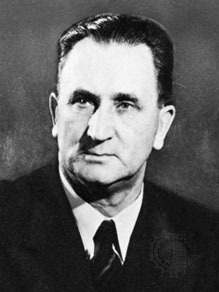
Johannes Gerhardus Strijdom, also known as Hans Strijdom and nicknamed the Lion of the North or the Lion of Waterberg, was the fifth prime minister of South Africa from 30 November 1954 to his death on 24 August 1958. He was an uncompromising Afrikaner nationalist and a member of the largest, baasskap faction of the National Party (NP), who further accentuated the NP's apartheid policies and break with the Union of South Africa in favour of a republic during his rule.
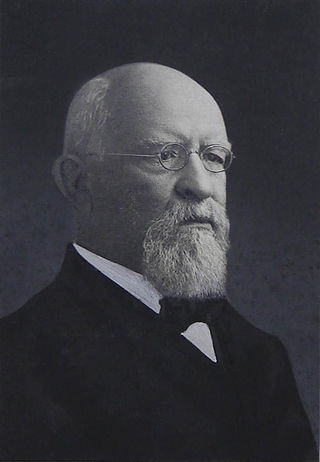
Jan Hendrik Hofmeyr was a politician in the Cape Colony. He was affectionately known as Onze Jan, "our Jan" in Dutch.

Marais Viljoen, was the last ceremonial State President of South Africa from 4 June 1979 until 3 September 1984. Viljoen became the last of the ceremonial presidents of South Africa when he was succeeded in 1984 by Prime Minister P. W. Botha, who combined the offices into an executive state presidency.
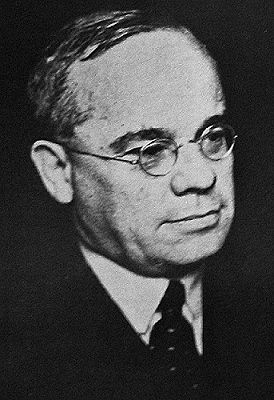
Jan Hendrik Hofmeyr was a South African politician and intellectual in the years preceding apartheid. In his lifetime he was regarded as one of the cleverest men in the country, and it was widely expected that he would eventually become Prime Minister of South Africa. He came from a well-known Afrikaner family; his uncle, also Jan Hendrik Hofmeyr but known affectionately as "Onze Jan" among fellow Afrikaners, was a famous figure in the Afrikaans language movement.

From 1910 to 1961 the Union of South Africa was a self-governing country that shared a monarch with the United Kingdom and other Dominions of the British Empire. The monarch's constitutional roles were mostly delegated to the Governor-General of the Union of South Africa.

A referendum on becoming a republic was held in South Africa on 5 October 1960. The Afrikaner-dominated right-wing National Party, which had come to power in 1948, was avowedly republican and regarded the position of Queen Elizabeth II as the South African monarch as a relic of British imperialism. The National Party government subsequently organised the referendum on whether the then Union of South Africa should become a republic. The vote, which was restricted to whites—the first such national election in the union—was narrowly approved by 52.29% of the voters. The Republic of South Africa was constituted on 31 May 1961.
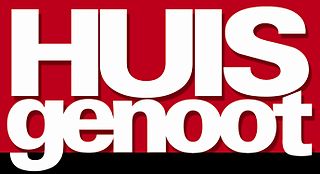
Huisgenoot is a weekly South African Afrikaans-language general-interest family magazine. It has the highest circulation figures of any South African magazine and is followed by sister magazine YOU, its English-language version. A third magazine, Drum, is directed at the black market. The magazines have a combined circulation of about 550 000 copies a week. Yvonne Beyers is the current editor of Huisgenoot.

Afrikaner nationalism is a nationalistic political ideology created by Afrikaners residing in Southern Africa during the Victorian era. The ideology was developed in response to the significant events in Afrikaner history such as the Great Trek, the First and Second Boer Wars and the resulting anti-British sentiment that developed among Afrikaners and opposition to South Africa's entry into World War I.

Johannes "Jan" de Klerk, was a South African politician. He was the father of F. W. de Klerk, the last apartheid State President of South Africa.

Barend Jacobus "Ben" Schoeman was a South African politician of the National Party prominent during the apartheid era. He served as the Minister of Labour from 1948 to 1954, and the Minister of Transport from 1954 until 1974.
Antisemitism in South Africa is the manifestation of hostility, prejudice or discrimination against South African Jews or Judaism as a religious, ethnic or racial group. This form of racism has affected Jews since South Africa's Jewish community was established in the 19th century.

Naspers Limited is a South African multinational internet, technology and multimedia holding company headquartered in Cape Town, with interests in online retail, publishing and venture capital investment. Naspers' principal shareholder is its Dutch listed investment subsidiary Prosus, which owns approximately 49% of its parent as part of a cross ownership structure.
Alexander Hepple was a trade unionist, politician, anti-apartheid activist and author. He was the last leader of the South African Labour Party.
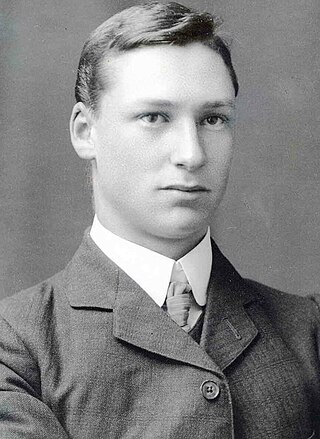
Henry Allan Fagan, QC was the Chief Justice of South Africa from 1957 to 1959 and previously a Member of Parliament and the Minister of Native Affairs in J. B. M. Hertzog's government. Fagan had been an early supporter of the Afrikaans language movement and a noted Afrikaans playwright and novelist. Though he was a significant figure in the rise of Afrikaner nationalism and a long-term member of the Broederbond, he later became an important opponent of Hendrik Verwoerd's National Party and is best known for the report of the Fagan Commission, whose relatively liberal approach to racial integration amounted to the Smuts government's last, doomed stand against the policy of apartheid.
Jacob "Japie" Basson was a South African politician who began his career with the National Party, but was later expelled from it, and became a forceful critic of the apartheid government as a member, by turns, of the United Party, Progressive Federal Party, and his own short-lived National Union. He was described as "fiery", "colourful", an "individualist", and as the "chameleon" of South African politics for his shifting partisan allegiances.
Wynand Johannes Boshoff is a South African academic and politician from the Northern Cape serving as a Member of the National Assembly of South Africa for the Freedom Front Plus (FF+) since 2019. He has been serving as the Provincial Leader of the FF+ since 2015. He previously served as a municipal councillor of the Sol Plaatje Local Municipality from 2016 to 2019. Boshoff is the grandson of the assassinated apartheid-era Prime Minister of South Africa, Hendrik Verwoerd, who served from 1958 until 1966, and the son of Afrikaner enclave Orania founder, Carel Boshoff.















